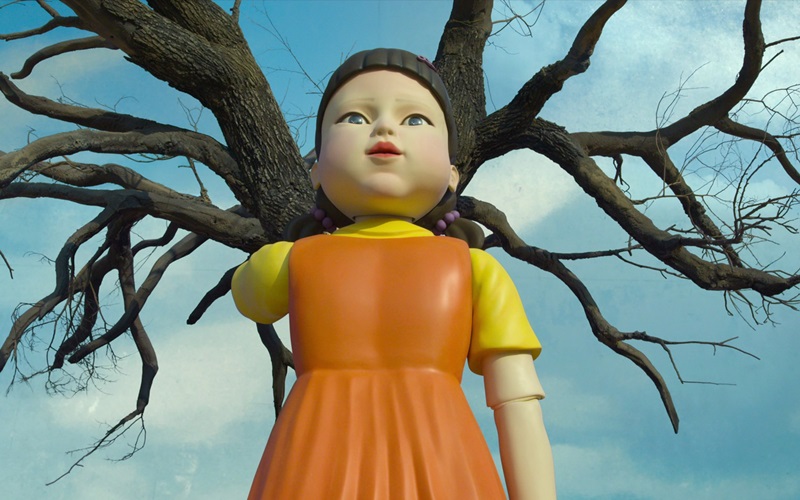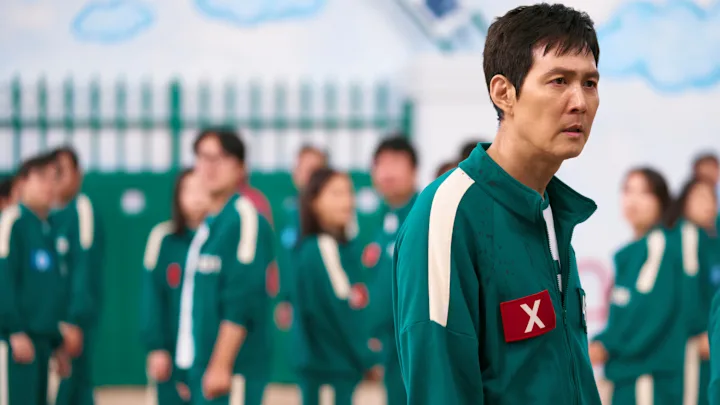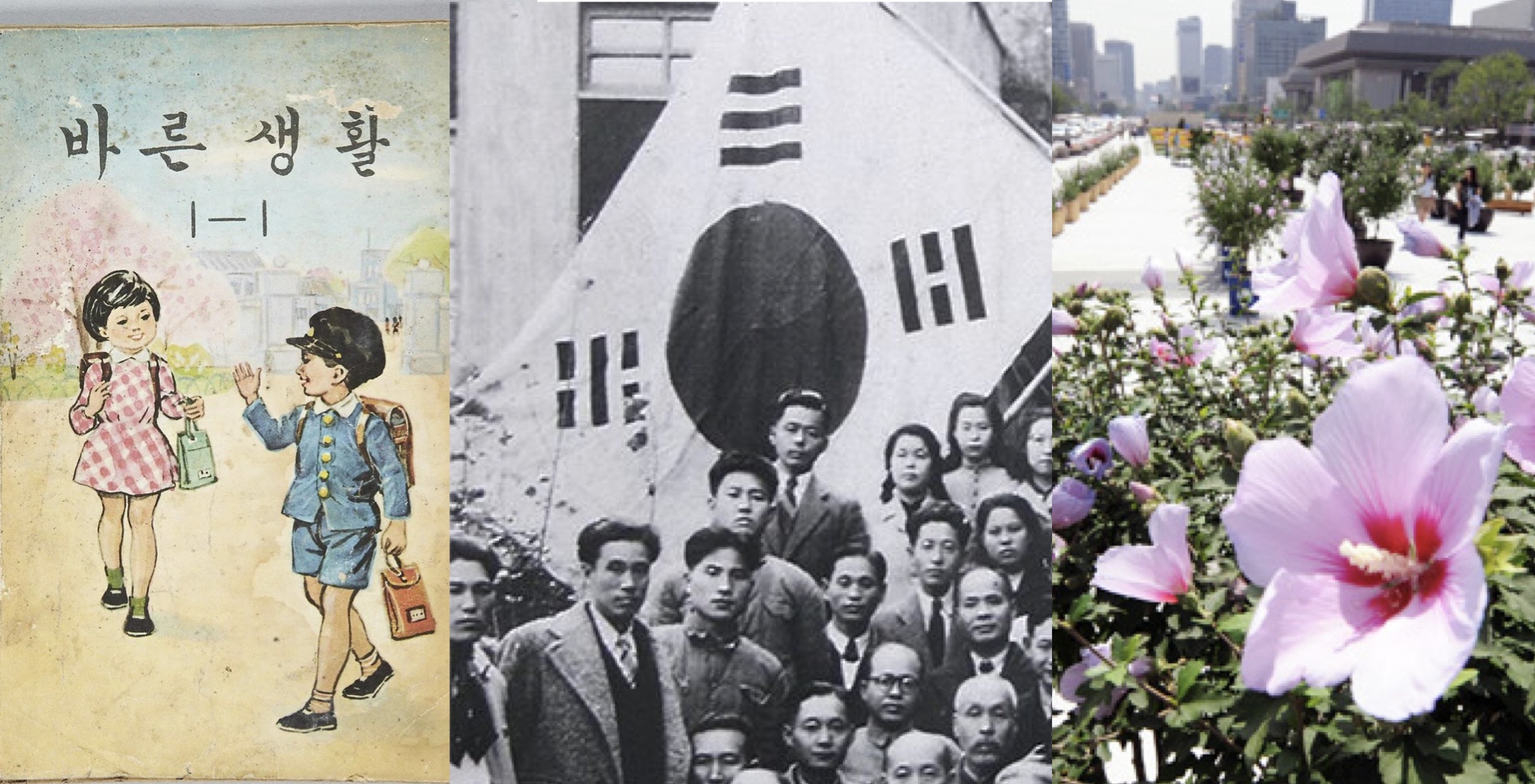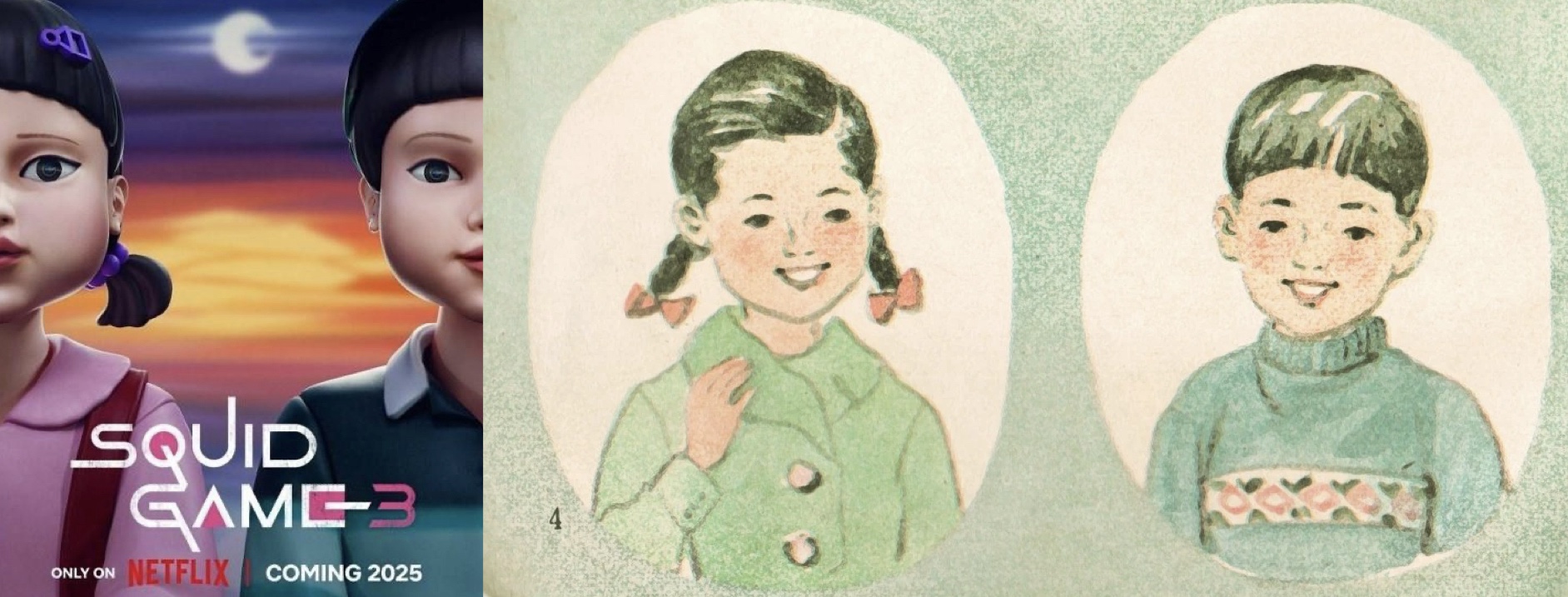Analysing the origins of the Iconic ‘AEIOU Stop’ Game in Squid Game
Author: Pimpichaya Chaikittiporn | Photographer: Courtesy of KCCUK, Korea Times, and Netflix
Jan 06, 2025
"...The survival series that has captured the hearts of viewers worldwide, Squid Game, is back with a sequel. This season features the return of the iconic game from the first series, AEIOU Stop or as it’s commonly known in Thailand, Kokowa, allowing viewers to experience the suspense all over again. Today, #legend_th will explore the origins of this famous game and the inspiration behind the giant statue of the little girl doll, which has become the trademark of this game..."

Squid Game is a Netflix original series that holds the record for the most-watched series of all time. The show is set in a mysterious game arena where the winner walks away with an enormous cash prize. The games themselves seem simple, inspired by traditional children's games from South Korea, but what no one knows is that losing a game means certain death. The first season ends with the protagonist, Seong Gi-hun (Player 456), as the winner and surviving the brutal competition. On December 26, 2024, Squid Game returned, continuing the intense saga. The sequel focuses on Gi-hun's quest for revenge and his plan to dismantle the deadly game once and for all.

A key element of the Squid Game series is the games, each inspired by traditional children's games. Examples include marbles and tug-of-war (from Squid Game Season 1), which may appear simple but become deadly when players' lives are at stake. One particularly intriguing and iconic game in Squid Game is AEIOU Stop, featured in both seasons. In this game, a giant female doll stands in the centre of the room, continuously singing a song. When the song ends, all players must freeze and remain completely still. The doll’s eyes contain laser sensors to detect any movement. If anyone is caught moving, the game’s guards will immediately shoot them.
 The giant female doll in Squid Game is inspired by Yeong-hee (영희), a cartoon character from South Korean elementary school textbooks, first appearing in 1948, created by artist Kim Tae-hyeong. In the series, the doll sings a song not about Kokowa, but Mugunghwa — a traditional Korean song whose lyrics are: 무궁화꽃이 피었습니다 (Mugunghwa kkoch-i pieossseumnida), which translates to "The Mugunghwa flower has bloomed." This game holds significant cultural value for South Koreans, as it has ties to the resistance against Japan's oppressive rule over Korea. During the period of Japanese occupation, Korea was forced to abandon its national identity, and even the Mugunghwa (Rose of Sharon), the national flower of Korea, was banned from being planted. Koreans were also compelled to adopt Japanese culture, learn the Japanese language, and follow Japanese customs in their daily lives. At that time, children were forced to play the Japanese game Daruma (ダルマさんがころんだ, Daruma-san ga koronda), meaning "The Daruma will fall." In response to this, the Korean revolutionary figure Namgung Ok changed the lyrics of the game to Mugunghwa, in an act of cultural defiance. The Mugunghwa flower was adopted as a symbol of Korea’s national identity and resistance against the Japanese occupation.
The giant female doll in Squid Game is inspired by Yeong-hee (영희), a cartoon character from South Korean elementary school textbooks, first appearing in 1948, created by artist Kim Tae-hyeong. In the series, the doll sings a song not about Kokowa, but Mugunghwa — a traditional Korean song whose lyrics are: 무궁화꽃이 피었습니다 (Mugunghwa kkoch-i pieossseumnida), which translates to "The Mugunghwa flower has bloomed." This game holds significant cultural value for South Koreans, as it has ties to the resistance against Japan's oppressive rule over Korea. During the period of Japanese occupation, Korea was forced to abandon its national identity, and even the Mugunghwa (Rose of Sharon), the national flower of Korea, was banned from being planted. Koreans were also compelled to adopt Japanese culture, learn the Japanese language, and follow Japanese customs in their daily lives. At that time, children were forced to play the Japanese game Daruma (ダルマさんがころんだ, Daruma-san ga koronda), meaning "The Daruma will fall." In response to this, the Korean revolutionary figure Namgung Ok changed the lyrics of the game to Mugunghwa, in an act of cultural defiance. The Mugunghwa flower was adopted as a symbol of Korea’s national identity and resistance against the Japanese occupation.

As we can see, each game in Squid Game is deeply tied to the history and culture of South Korea, making them all the more fascinating. #legend_th will definitely analyse more games from the series in the future. In addition, Netflix has unveiled a new killer doll that will appear in Season 3, named Cheol-su (철수), which is also inspired by a South Korean elementary school textbook, much like Yeong-hee. It’s exciting to see what thrilling plot twists and suspenseful moments the final season will bring.
Also See: PUMA x Squid Game: The Mingle Edition inspired by Squid Game






























